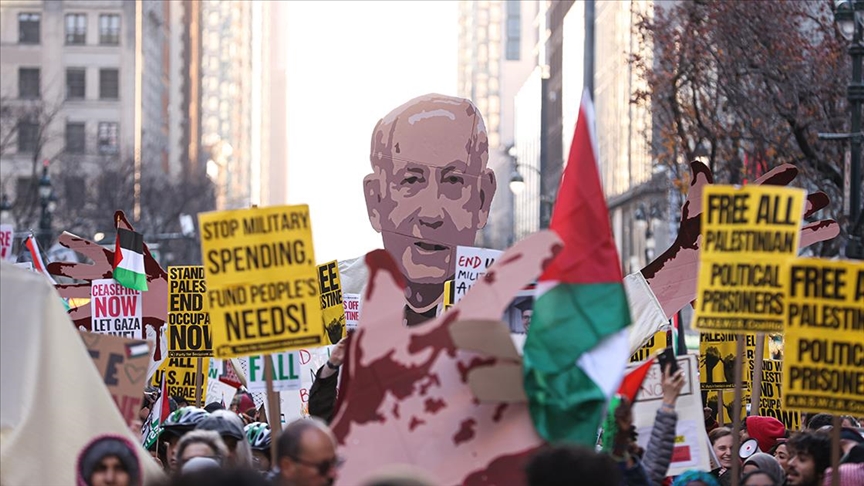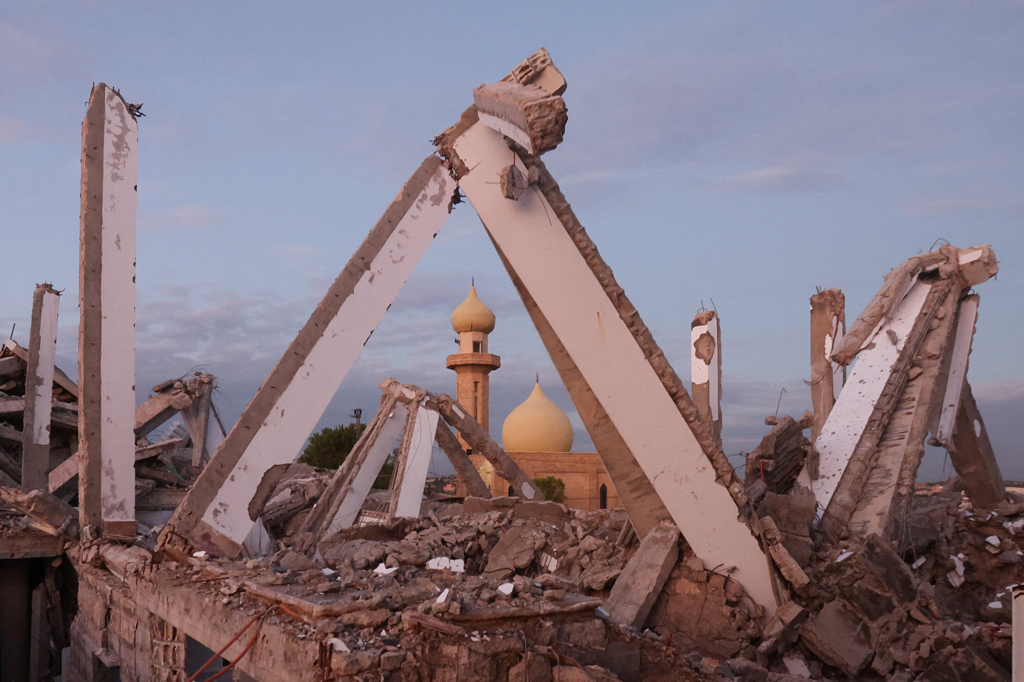Unfortunately, the holy month of Ramadan started without a cease-fire in Gaza, where humanity faces a new test. Will the people of Gaza witness a cease-fire and the delivery of humanitarian aid or more atrocities this month?
U.S. President Joe Biden recently said that
they are working on a six-week emergency cease-fire, describing Rafah as a red line. Yet Israeli Prime Minister Benjamin Netanyahu reiterated his commitment to conduct military operations in that area. The Israeli army perpetrating atrocities in Rafah, where 1.4 million Palestinians have been starving during Ramadan, would be a new source of shame for the world and the Muslim community. Since the U.S. exerts greater influence over Israel than any other nation, one cannot help but keep an eye on the Biden administration's (in)action.
Biden's dual approach amid calls to 'stop genocide'
Ahead of the U.S. presidential election in November, President Biden faces incessant calls to "stop the genocide." His administration, however, remains committed to the two-pronged strategy, which hasn't even led to a cease-fire yet. On the one hand, Washington insists that it continues to push for a cease-fire, pledging to build a temporary port for humanitarian relief and endorsing the two-state solution. On the other hand, the Biden administration continues to provide military assistance to Israel and fails
to mount enough pressure on Netanyahu to end the bloodshed.
It is possible to argue that the Israeli prime minister is cunning and capable of surviving, but hardly anyone seems to think that the U.S. cannot talk Israel out of attacking Rafah. Quite the contrary, America's unconditional support and military assistance to Israel, not to mention its offer of protection through U.S. aircraft carriers and Biden describing himself as a Zionist, come to mind.
The U.S. president criticizing Netanyahu for killing more than 30,000 Palestinians in Gaza and warning that the Israeli prime minister does more harm than good is not really convincing either. Indeed, Biden identified Rafah as a red line but promptly ruled out the possibility of abandoning Israel altogether. In other words, the Biden administration does not intend to suspend the delivery of weapons to Israel. There is no reason to assume that Washington's current approach would deter a seasoned politician like Netanyahu.
Netanyahu defends policies despite criticism
In response to Biden's comments, the Israeli prime minister stressed that Washington would be wrong to think that his government pursued certain policies against the will of the majority and that those policies were undermining Israeli interests. Quite the contrary, he insisted that the vast majority supported his government's approach. Accordingly, Netanyahu has portrayed the killing of civilians in the name of eradicating Hamas as Israel's national interest. He also said that he would not hand over that territory to the Palestinian administration, which he accused of supporting terrorism. That is undoubtedly the greatest challenge.
If Netanyahu refuses to end the massacres to stay in power, why aren't the remaining Israeli politicians stopping him? Is it really possible to attribute what is happening to Israeli politics shifting to the right?
Let us recall that the Israeli public has not been reacting to the bloodshed as strongly as Westerners. Indeed, my Western contacts note that the people of Israel must be persuaded for the fighting in Gaza to end.
And if Netanyahu is right and the majority of Israel supports the current policy, who could possibly change their mind?
That Israel won't stop unless and until it pays some price has become the mainstream view. A massacre in Rafah would inflict irreparable harm on the image and interests of Israel as well as the United States. Failure to prevent that development would also cause the Muslim nations to receive their share of the embarrassment.
[Daily Sabah, March 14, 2024]








